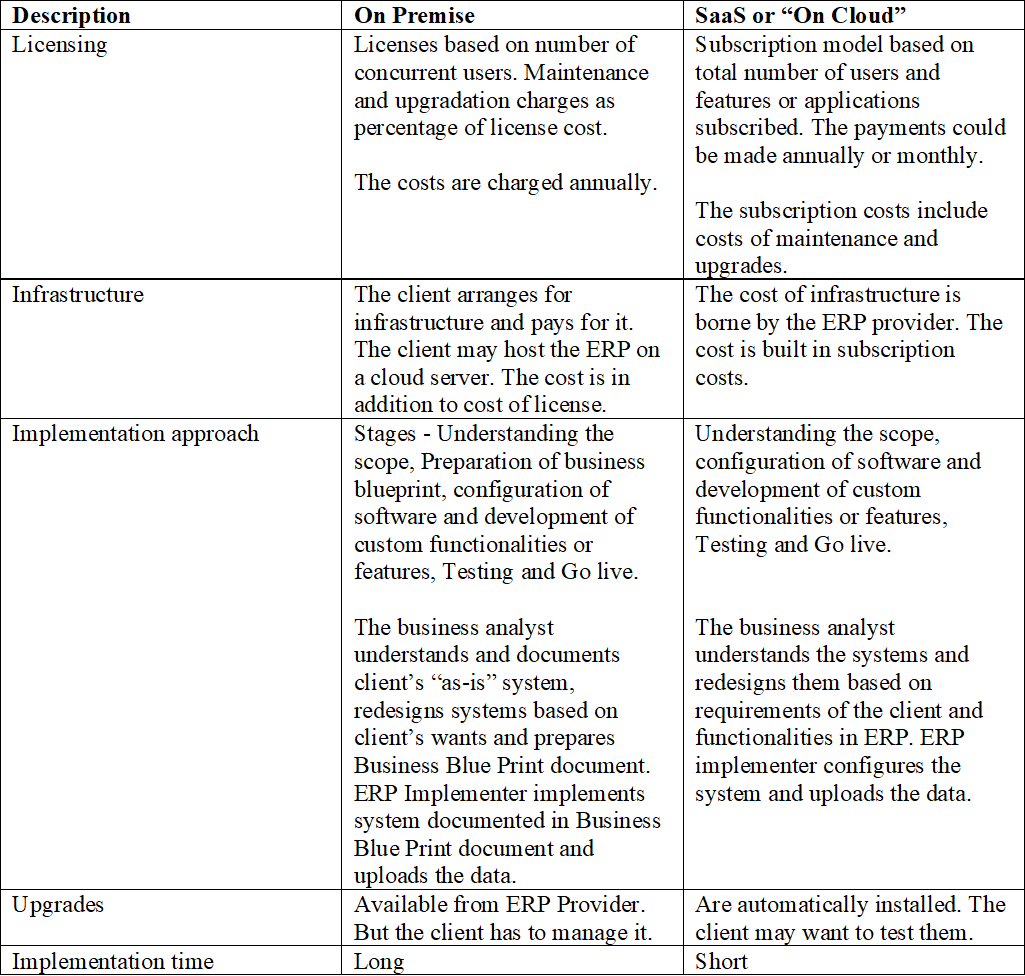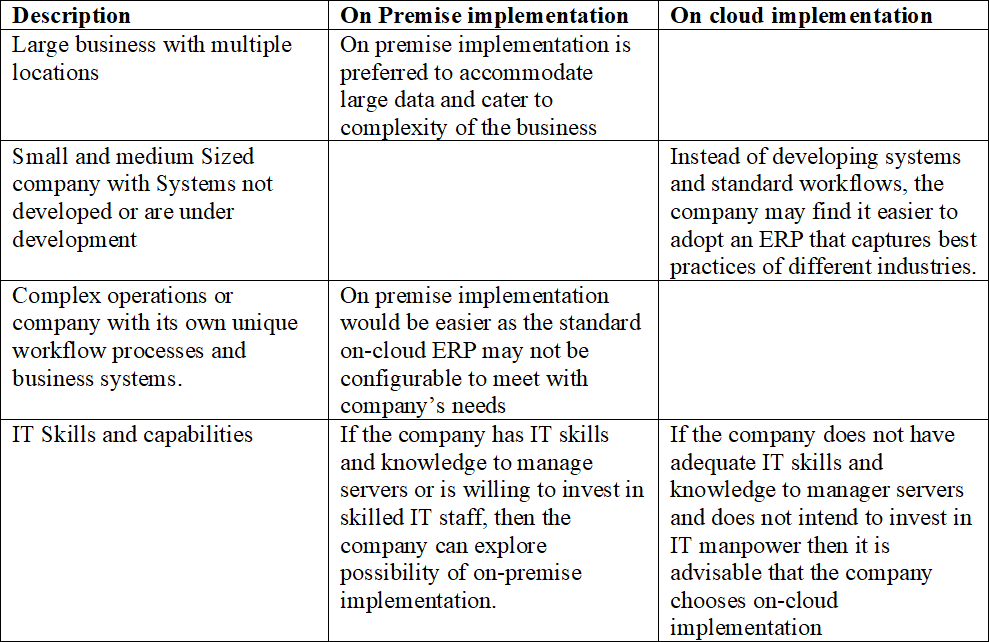-
-
-
B-23, Sector-63, Noida, Uttar Pradesh 201301




B-23, Sector-63, Noida, Uttar Pradesh 201301





In our previous blog, https://mentorsunlocked.com/what-is-the-difference-between-cloud-hosted-or-cloud-erp-solution/ we talked about difference between “On premise” installations of ERPs and “On Cloud” or SaaS implementations of ERP. In this blog we, Mentors Unlocked, will talk about how can a company decide and choose which option to choose. But before we talk about it, let us recapitulate the differences between the two types of implementations

The time taken in business analysis understand the customer’s existing business, customer’s needs and wants, and to document them is much longer in “on premise” implementation than in the “on cloud” implementation. The outcome also determines the time taken in configuration of software.
The key criteria to judge or decide which system will suit is
– Do you want the software to be tailored to your business needs or
– Would you be comfortable in adopting standard business practices?
If it is the former, then the company should opt for “on premise” implementation and if it is latter, then the company can opt for “on cloud” implementation. The other paramount criteria, other than business requirement is budget or affordability. Typically, organizations can budget or allocate 1/2 percent to 1% of the topline for ERP implementation. Some of the other criteria to choose are as follows

An Example : We, Mentors Unlocked, are working with a company that operates in one of the sunrise sectors. The industry is just developing and the company is not sure what strategic and tactical changes it might make to grow and improve its profitability. The manufacturing planning process in the company is different from the conventional planning processes which are either “make to stock” or “make to order”. We have advised the company to go in for “on-premise” installation because
– Of the complexity in its business operations. The company is testing different business models. It is not sure which models will get scaled up. This makes the operations of the company very complex. It also increases the complexity in its business operations e.g., ensuring traceability from raw material to finished good. The company has to store a large amount of data. It plans to integrate a business analytics tool so as to make it easy for it to analyze data.
– The company has developed its own unique procurement process that provides it an edge over its competitors. Adopting standard procurement process will not work with the company.
The manufacturing process of the company is complex and different but a customized application can be developed for it which can be used with on-cloud implementation. The criteria for choosing “on premise” implementation is complexity in business operations and flexibility needed in the ERP software to meet with the future needs of the organization. ERPs are expensive.
The decision to choose an ERP has long term implications on the operations and quality of management decisions, hence it is important that the company spends adequate time and resources to conduct its due diligence before it makes a choice.